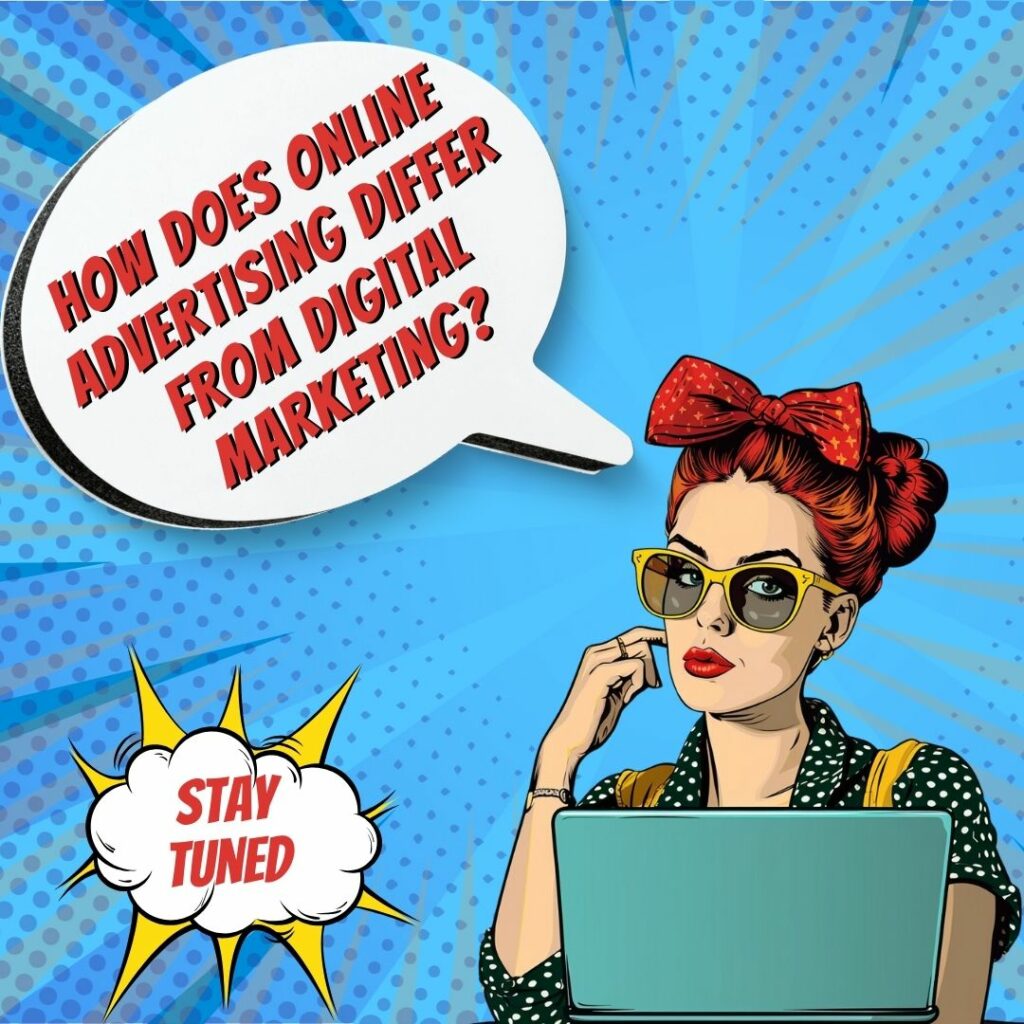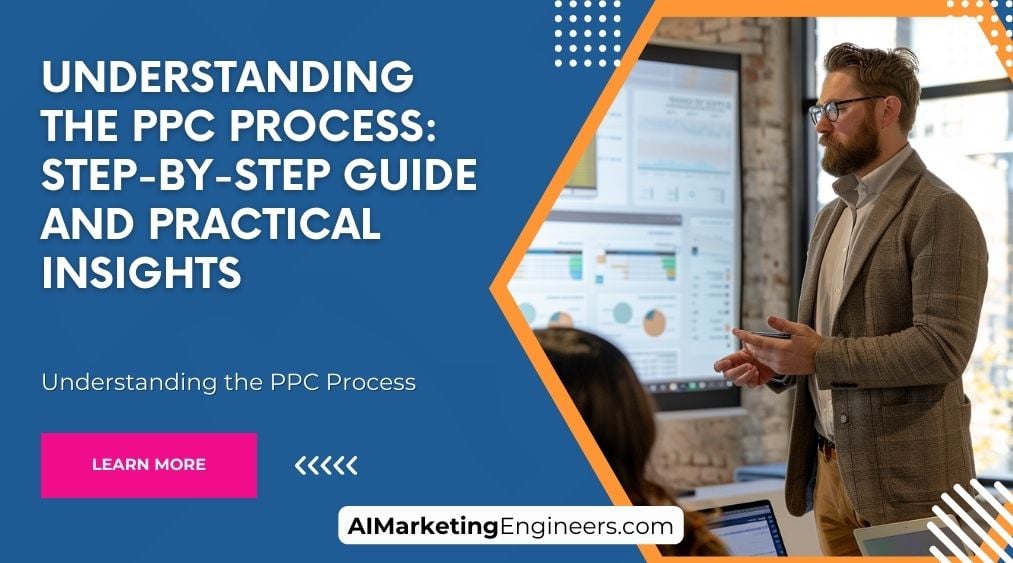Key Takeaways
✅ Scope and Strategy: Online advertising is a subset of digital marketing focused specifically on paid campaigns such as PPC, display ads, and social media ads. According to eMarketer, global digital ad spending reached $455.30 billion in 2021, illustrating the significant investment businesses are making in this targeted approach. Digital marketing, however, encompasses a broader range of activities, including SEO, content marketing, email marketing, and social media engagement.
✅ Channel Utilization: Digital marketing leverages a wide array of online and offline channels, from email and social media to mobile apps and digital billboards. In contrast, internet marketing is confined to online channels. A report by Statista indicates that in 2023, 82% of marketers were using social media for marketing purposes, demonstrating the extensive reach and versatility of digital marketing compared to the more focused scope of internet marketing.
✅ Engagement and Measurement: Online advertising provides immediate metrics and insights, such as click-through rates and conversion rates, which are vital for measuring campaign performance. Digital marketing, with its broader approach, includes long-term engagement metrics like brand loyalty and customer lifetime value.

Introduction
In today's rapidly evolving digital landscape, understanding the nuances between online advertising, digital marketing, and internet marketing is crucial for businesses looking to maximize their reach and impact. These terms are often used interchangeably, but they each encompass distinct strategies and approaches. By distinguishing between them, companies can better allocate resources, optimize their campaigns, and achieve more targeted and effective results.
With the proliferation of digital channels and platforms, it’s essential to grasp how online advertising focuses on paid media, digital marketing embraces a comprehensive strategy, and internet marketing primarily revolves around web-based efforts. This clarity not only enhances marketing efficiency but also empowers businesses to engage more meaningfully with their audiences. Let’s delve into the key differences and uncover how each plays a unique role in the digital marketing ecosystem.
Top Statistics
| Statistic | Insight |
|---|---|
| Global Digital Advertising Spending: Projected to reach $455.3 billion in 2021. (Source: Statista, 2021) | This substantial amount signals a thriving landscape and highlights the importance of strategic online advertising. |
| Mobile Advertising: Expected to account for 75% of total digital ad spending in 2021. (Source: eMarketer, 2021) | Mobile optimization is not just a trend but a cornerstone in targeting the tech-savvy consumer. |
| Global Digital Marketing and Advertising Market: Forecasted to reach $786.2 billion by 2026. (Source: Allied Market Research, 2021) | The anticipated growth is a beacon for businesses to innovate and integrate comprehensive digital marketing strategies. |
| YouTube Usage Among U.S. Adults: 81% are active users. (Source: Pew Research Center, 2021) | Highlighting YouTube’s potential as a powerful channel within internet marketing strategies to engage a large audience. |
| Instagram Engagement: 60% of users aged 18-29 use Instagram. (Source: Pew Research Center, 2021) | Showcases the importance of targeting specific demographics and optimizing content for engagement on various platforms. |
Understanding Online Advertising
Online Advertising focuses solely on paid promotional strategies designed to target specific audiences via the internet. Common methods include display ads on websites, sponsored posts on social media, and paid search results on search engines like Google. The effectiveness of these campaigns is often measured by key metrics such as Cost Per Click (CPC), Cost Per Mille (CPM), and Click Through Rate (CTR). However, while online advertising is a critical component of broader marketing strategies, it is just one element within the vast scope of digital marketing.
Exploring Digital Marketing
Unlike online advertising, Digital Marketing encompasses a broader range of practices aimed at promoting products or services using digital channels. This holistic approach includes online advertising but also extends to Search Engine Optimization (SEO), content marketing, email marketing, and social media marketing. By integrating multiple channels and techniques, digital marketing aims to build brand awareness and customer loyalty over time. Each component serves a specific function, contributing to a cohesive strategy that drives engagement and conversions.
The Scope of Internet Marketing
Often used interchangeably with digital state marketing, Internet Marketing is sometimes distinguished by its focus on the internet as the primary channel. This form includes all activities like managing a website, optimizing search engine rankings, and engaging users on social media platforms. While comparable to digital marketing, internet marketing emphasizes the power of the online connection, often prioritizing direct engaging strategies that leverage digital interactions. The approach is particularly powerful in leveraging real-time data and interactions to refine strategies and improve outcomes.
Key Differences to Note
Clarifying Digital Marketing, internet marketing, and online advertising reveals each field's unique aspects and how they contribute to comprehensive marketing approaches. Online advertising is a subset of digital marketing, focusing on paid channels to drive immediate traffic and conversions. In contrast, digital marketing entails a wider spectrum of activities aimed at long-term brand engagement across multiple digital platforms, including but not limited to paid advertising. Internet marketing often mirrors digital marketing but insists on the internet's leverage as the utmost channel. Understanding these distinctions is essential for crafting effective strategies and optimizing resource allocation.
Why Delineate These Terms?
Grasping these distinctions aids marketers in deploying more effective campaigns and improving ROI. Recognizing the specific competencies and reach of online advertising versus broader digital or internet marketing strategies enables businesses to allocate budgets and resources more efficiently, ensuring that each initiative supports overarching business goals. Moreover, understanding these terms can prevent common pitfalls and optimize synergies between various marketing methodologies, ultimately enhancing overall business performance.
References and further reading show that staying informed on these nuances not only magnifies a marketer's toolkit but also aligns marketing strategies more closely with the evolving digital landscape.
AI Marketing Engineers Recommendation
Recommendation 1: Understand and harness the specific strengths of each medium: Online Advertising, Digital Marketing, and Internet Marketing. For instance, though often used interchangeably, each of these terms covers a different scope of strategies and tools. Online Advertising generally refers to the paid ads that appear on websites and online platforms, such as Google Ads or Facebook Ads. In contrast, Digital Marketing is a broader concept that includes not just online advertising but also other tools like SEO, content marketing, and email marketing. Internet Marketing is similar to digital marketing but is exclusively confined to the activities on the internet. By recognizing these distinctions, businesses can tailor their strategies to maximize the effectiveness of each medium.
Recommendation 2: Leverage data analytics to optimize spending and targeting across platforms: Current trends show a significant increase in digital ad spending, expected to reach about $526 billion by 2024. By using analytics tools to understand where each type of marketing yields the best return on investment, companies can wisely allocate their budgets. For example, if data shows that your customer engagement rates are highest with email marketing (a part of digital marketing), it would be prudent to allocate more resources there as opposed to solely focusing on pay-per-click models in online advertising.
Recommendation 3: Utilize integrated marketing platforms: Digital Marketing, and Internet Marketing. Tools such as HubSpot or Salesforce provide comprehensive solutions that manage customer relationships across various digital channels. These platforms not only help in creating a unified strategy that covers all aspects of digital and internet marketing but also provide valuable insights through data collected from different marketing initiatives. This integration ensures consistency in messaging, improves efficiency in execution, and enhances the overall effectiveness of marketing campaigns. Such tools are increasingly relevant as businesses seek to provide a seamless experience to customers across all digital touchpoints.
Relevant Links
- Discover the secrets to successful affiliate marketing in 2024 with our expert guide.
- ChatGPT Marketing: A Modern Marketer’s Tool for Creative Content.
- Stay ahead with the top 10 digital marketing trends for 2024.
- Revolutionize Your Google Ads Campaigns with Chat GPT: The AI Tool That Writes High-Converting Texts.
- Transform your advertising effectiveness with AI-powered solutions.
Conclusion
In wrapping up this exploration into the nuances between online advertising, digital marketing, and internet marketing, it’s evident that while these terms are often used interchangeably, they each possess distinct qualities that impact a brand’s marketing strategy. Online advertising is the sharpshooter of the trio, targeting specific audiences with paid ads to elicit quick responses and trackable results. Conversely, digital marketing serves as an umbrella, integrating various online and electronic methods, including the strategic use of online advertising to create a more comprehensive approach to audience engagement.
Internet marketing, while similar to digital marketing, narrows its focus primarily on leveraging the internet. This approach emphasizes the power of the web and social media platforms to reach audiences directly and efficiently. By understanding these differences, businesses can tailor their strategies to not only allocate resources wisely but also enhance their overall return on investment (ROI).
The clarity gained from distinguishing these related but unique aspects of modern marketing is invaluable. It enables marketers to craft nuanced strategies that resonate more deeply with target audiences. As we push forward in this digital age, keeping these distinctions in mind will be crucial for businesses aiming to thrive in a competitive marketplace. Are you leveraging the right type of marketing for your goals? Consider these insights to refine your approach and boost your business’s market presence.
FAQs
Question 1: What is Online Advertising?
Answer: Online Advertising refers to the practice of promoting products, services, or brands through paid channels on the internet. This includes display ads, search engine ads, social media ads, and more.
Question 2: What is Digital Marketing?
Answer: Digital Marketing is an umbrella term that encompasses all marketing efforts conducted through electronic devices or the internet. It includes online advertising, as well as other tactics such as content marketing, email marketing, and search engine optimization (SEO).
Question 3: What is Internet Marketing?
Answer: Internet Marketing is a synonym for Digital Marketing, as it refers to the same set of marketing activities conducted through the internet.
Question 4: What are the main differences between Online Advertising, Digital Marketing, and Internet Marketing?
Answer: Online Advertising is a subset of Digital Marketing and Internet Marketing, focusing on paid channels. Digital Marketing and Internet Megkmarketing include both paid and unpaid (organic) tactics.
Question 5: How does SEO fit into Digital Marketing and Internet Marketing?
Answer: SEO is an integral part of Digital Marketing and Internet Marketing, as it focuses on improving a website's visibility in search engine results pages (SERPs) through organic, non-paid methods.
Question 6: Can Online Advertising be effective without Digital Marketing or Internet Marketing?
Answer: While Online Advertising can generate results on its own, it is often more effective when combined with other Digital Marketing and Internet Marketing tactics, such as SEO, content marketing, and email marketing.
Question 7: How do I measure the success of my Digital Marketing and Internet Marketing efforts?
Answer: You can measure the success of your Digital Marketing and Internet Marketing efforts using metrics such as website traffic, engagement rates, conversion rates, and return on investment (ROI).
Question 8: What are some advanced topics in Digital Marketing and Internet Marketing?
Answer: Advanced topics in Digital Marketing and Internet Marketing include marketing automation, personalization, AI-powered marketing, and omnichannel marketing.
Question 9: What practical advice can you give to someone starting in Digital Marketing or Internet Marketing?
Answer: Start by understanding your target audience, setting clear goals, and creating a comprehensive strategy that incorporates both paid and organic tactics. Continuously monitor and analyze your results to optimize your efforts.
Question 10: What are some popular hashtags related to Digital Marketing and Internet Marketing?
Answer: Some popular hashtags related to Digital Marketing and Internet Marketing include #DigitalMarketing, #InternetMarketing, #SEO, #ContentMarketing, #EmailMarketing, #SocialMediaMarketing, and #MarketingAutomation.
Academic References
- Kingsnorth, S. (2019). Digital Marketing Strategies: An Integrated Approach to Online Marketing. Kogan Page. This book provides a detailed exploration of digital marketing, emphasizing the integration of online advertising and internet marketing into a cohesive strategy.
- Chaffey, D., & Ellis-Chadwick, F. (2019). Digital Marketing: A Practical Approach. Pearson Education. This textbook defines digital marketing through the lens of using digital channels effectively and underlines the importance of data-driven decision-making.
- Johnson, G., Bhargava, N., & Smith, M. D. (2017). Online Advertising: Targeting, Optimization, and Economics. Marketing Science, 36(3), 366-379. This paper discusses critical aspects of online advertising, including targeting and optimization, with a strong focus on the economic factors influencing the digital advertising landscape.
- Kshetri, N. (2017). The Future of Internet Marketing. International Journal of Information Management, 37(5), 482-489. This article provides insights into the evolving field of internet marketing and its distinction from broader digital marketing practices, with a focus on consumer behavior.
- Chaffey, D., Ellis-Chadwick, F., & Johnston, K. (2019). Digital Marketing: Strategies, Implementation, and Practice. Pearson Education. This comprehensive resource covers various aspects of digital marketing, including strategic implementation and the intertwining roles of online advertising and internet marketing.











